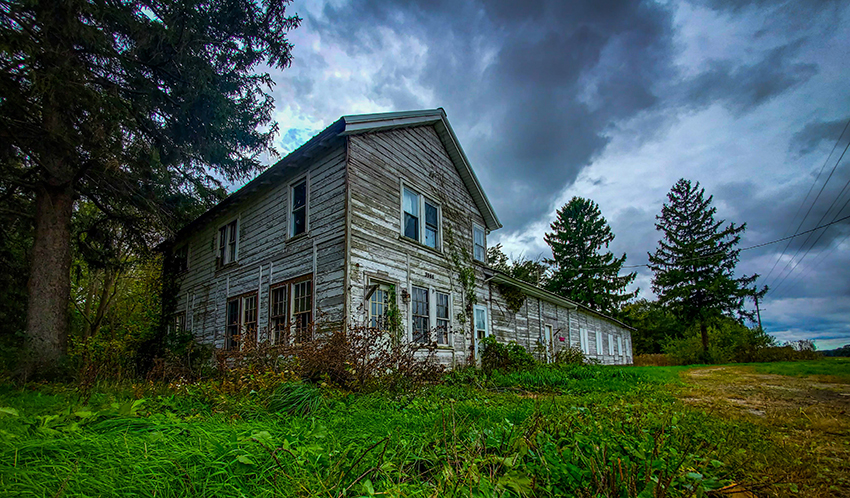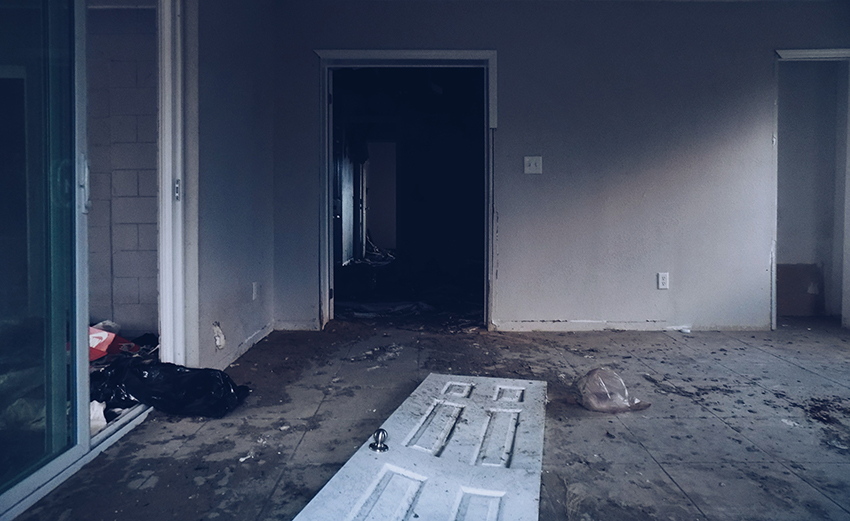
With a zombie apocalypse looming (Dawn of the Dead), foreclosures are one situation that you have to be careful about. If you are currently facing a foreclosure, it's best not to move out too soon as you may be "haunted" by a zombie foreclosure.

What is Zombie Foreclosure?
Zombie foreclosure occurs when homeowners vacate a house immediately after receiving a foreclosure notice from the bank but then along the line, the foreclosing bank doesn't complete the process. What happens next is this, while the house is at that uncompleted foreclosing stage, the title deed, property ownership, and the house itself remains in the name of the homeowner.
This situation then leads to a "zombie foreclosure" which can lead to severe issues for homeowners who have already vacated the home. It is a common occurrence and is often caused by homeowners moving immediately before completing the foreclosing process.
While the homeowner moves out of the house thinking that he/she would lose the home to foreclosure, the uncompleted sale, the canceled foreclosure, and the homeownership isn't transferred to a new company, entity, or person.
In simple and straightforward terms, a zombie foreclosure sometimes called a "zombie property" or "zombie title" occurs when a foreclosure that started was never completed, and the title never officially transferred.
In most cases, zombie foreclosures happen in low-income earning regions where the foreclosing bank doesn't feel the urge to take on the property's upkeep responsibility or wants to save on taxes. In other situations, the foreclosure process may be hindered by service errors, severe disrepair, or if squatters have become the new homeowners.
On rare occasions, the foreclosing bank may not go through the foreclosure process because the foreclosure paperwork may be missing, the foreclosure cost isn't worth the completion, or there are a lot of inventory.
Finding Zombie Foreclosures
Depending on the foreclosure climate and the market you operate in, pursuing zombie foreclosures may prove beneficial for prospective investment properties. As a savvy real estate investor, possessing a zombie property (properties which a foreclosing lender doesn't want to repossess or manage) may become a significant plus for you if you can realign the foreclosing property to make them "hot cakes" in the market.
The significant gain to this is that when the market eventually gets stabilized, housing units become more affordable and available, and everyone comes out of it a winner. But how do you find a zombie foreclosure that has the prospects of being viable? Here's how.
Before the entrance of data solution systems that could accurately locate zombie foreclosures, any investor with interest in possessing a zombie property could try any of the following:
- Digging through public records to verify property ownership before contacting the previously known owner.
- Calling the property management company.
- Calling the loan service provider or the lender.
However, each of these options will get you nowhere. Apart from property data solution systems that can pinpoint zombie properties accurately, you can go for shadow inventory.
Shadow inventory refers to bank-owned (REO) and already foreclosed properties. Now, foreclosed properties are properties that will make it to the market in the future, but at the present moment, they are not. This means that they are in a shadow inventory. The properties are getting ready to be sold or put on the market but are presently resting in the foreclosing banks' balance sheets.
Shadow inventory is a great way to possess zombie foreclosure properties that become an issue to the lender or the market.
Top U.S. States With High Zombie Foreclosure Rates
At a point in the United States, there were over three hundred thousand zombie properties approximately. In the third quarter of 2020, the numbers dropped drastically to just over 7,600, although there are still many zombie homes in some states and zip codes.
The U.S. states with the highest zombie foreclosure rates include New Jersey, South Carolina, Maryland, Illinois, and Delaware. From metro to housing units, Illinois ranked the fourth-highest number of zombie foreclosures in the United States at 868.

How a Zombie Foreclosure Can Affect You
When a foreclosure process falls through, and a zombie foreclosure occurs, the homeowner retains the legal responsibility to settle certain expenses and bills such as property maintenance, HOA dues, and property taxes. The debts accumulated on these obligations may go unpaid for months or years and may adversely bounce back on them as they had no idea of the uncompleted foreclosure process.
This may happen if the homeowners could not be easily found after moving out or when the bank doesn't inform the homeowner about the failed foreclosure. It is important to note that the bank may not be legally required to do so.
If you move off your property and later find out that the foreclosure didn't get completed for months or years, then a zombie foreclosure can affect you or the neighborhood in the following ways:
- Unattended and neglected "zombie foreclosed" homes may become a hideout for criminals, squatters, and vandals.
- It could lead to lowering of the neighborhood's value.
- You might get charged for not abiding with municipal ordinances and housing codes.
- Constant payment for property maintenance.
- Local government charges for trash removal, repairs, or yard maintenance, among other things.
- An HOA could file a lawsuit for the recovery of unpaid assessments.
- Property taxes.
The high tendency for zombie foreclosure gives you loads of reasons to remain as long as you can when a foreclosure happens. Staying through the entire process will help you avoid falling victim to zombie foreclosure.
Try as much as possible to get an official notice before you vacate your home. Also, confirm from the foreclosing bank and verify that the title and other responsibilities have been officially transferred away from you. You can also check the website and office of your local county recorder to ensure that there is a record of a new deed.